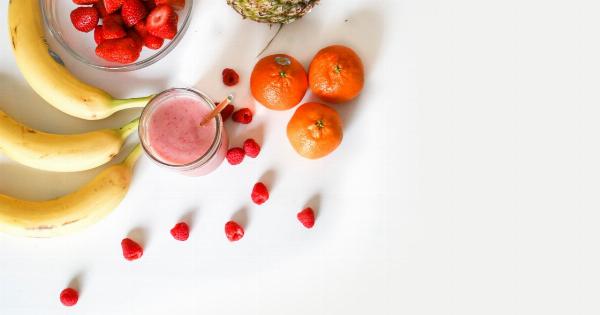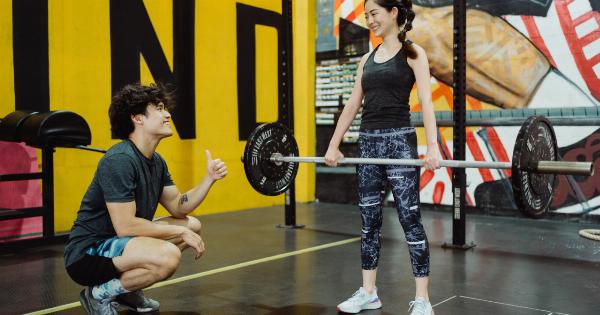Iron is an essential mineral that plays a vital role in the formation of hemoglobin, a protein in our red blood cells that carries oxygen throughout the body. Iron also helps in the production of myoglobin, which stores oxygen in our muscles.
However, iron deficiency is one of the most common nutrient deficiencies worldwide, which can cause anemia, fatigue, weakness, and other health problems.
Fasting is a practice that involves abstaining from food and drink for a certain period, either for religious, spiritual, or health reasons.
While fasting can have many benefits for the body, it can also affect the absorption of nutrients, including iron. Here are some tips on how to maximize iron absorption during fasting:.
1. Choose iron-rich foods
During your eating window, choose foods that are high in iron to ensure that you’re meeting your daily requirements.
Good sources of iron include red meat, chicken, fish, lentils, beans, tofu, fortified cereals, spinach, kale, and other dark leafy greens. Vitamin C also enhances iron absorption, so try to include foods that are rich in this vitamin, such as citrus fruits, berries, tomatoes, and bell peppers.
2. Cook in cast-iron pans
Cooking in cast-iron pans can increase the iron content of your food. When cooking acidic foods such as tomatoes or citrus fruits in a cast-iron pan, a small amount of iron is leached into the food, which can be beneficial for iron absorption.
However, it’s important not to overdo it, as excessive iron intake may lead to iron overload, which can be harmful to the body.
3. Avoid coffee and tea
Coffee and tea contain compounds called phenols and tannins, which can inhibit iron absorption. Therefore, it’s best to avoid drinking coffee or tea during your fasting window, especially if you’re consuming iron-rich foods.
If you need a caffeine fix, try drinking herbal tea or decaf coffee instead.
4. Take iron supplements
If you’re not able to meet your daily iron needs through diet alone, you may consider taking iron supplements during your eating window.
However, it’s important to consult with your healthcare provider before taking any supplements, as excessive iron intake can have adverse effects on the body.
5. Spread out iron intake
Instead of consuming all your iron in one meal, consider spreading out your iron intake throughout your eating window. This can help maximize iron absorption and prevent gastrointestinal discomfort.
It’s also important to note that consuming large amounts of iron at once can inhibit the absorption of other minerals, such as zinc and copper, so it’s best to space out your intake.
6. Get enough sleep
Getting adequate sleep is essential for the body to absorb and utilize nutrients, including iron. Lack of sleep can impair the body’s ability to absorb iron and lead to lower iron levels in the blood.
Therefore, it’s important to prioritize sleep and aim for at least 7-8 hours of sleep each night.
7. Consider an iron panel test
If you’re concerned about your iron levels or suspect you may have an iron deficiency, consider getting an iron panel test.
This blood test measures various markers of iron status in the body, including ferritin (a protein that stores iron), transferrin (a protein that transports iron), and hemoglobin (the protein that carries oxygen in the blood). Your healthcare provider can interpret the results of the test and recommend appropriate interventions if necessary.
8. Pay attention to absorption inhibitors
Some substances can inhibit iron absorption, such as calcium, phytates (found in grains and legumes), and certain medications (such as antacids and antibiotics).
Therefore, it’s important to pay attention to these absorption inhibitors and take measures to mitigate their effects on iron absorption. For example, you may consider taking iron supplements at a different time from your calcium supplements or medications.
9. Be mindful of iron overload
While iron deficiency is a common problem, excessive iron intake can also be harmful to the body. Iron overload can cause oxidative damage, leading to inflammation, liver damage, and other health problems.
Therefore, it’s important to be mindful of your iron intake and avoid excessive supplementation without medical supervision.
10. Seek medical advice
If you’re experiencing symptoms of iron deficiency, such as fatigue, weakness, or pallor, it’s important to seek medical advice.
Your healthcare provider can evaluate your iron status and recommend appropriate interventions, such as dietary changes, supplements, or further testing.































